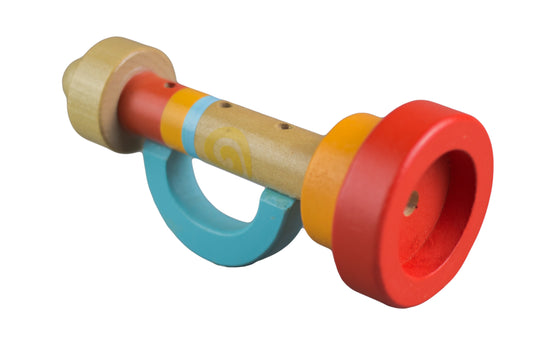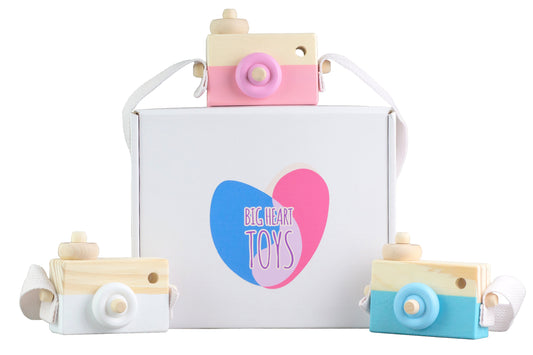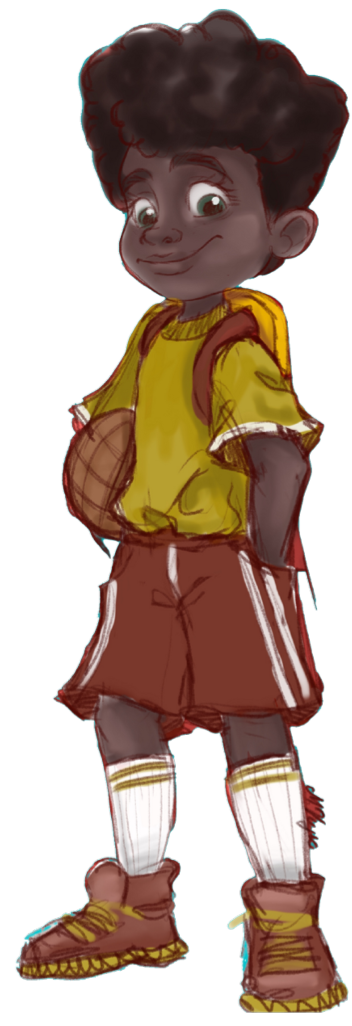Whether it's a tea party or a superhero rescue mission, dramatic play encourages children to tap into their creativity, develop their communication skills, and embrace imaginative thinking.
When children play pretend or make-believe, they are engaging in dramatic play. Let’s discover more about dramatic play and how it can support children’s development.
What Is Dramatic Play?
Dramatic play, also known as pretend play or imaginative play, is a type of play in which children engage in make-believe scenarios, taking on different roles and using their imagination to create fictional worlds. From playing house to pretending to be mermaids, dramatic play offers children the opportunity to explore different roles, situations, and emotions.
Children use their creativity and imagination during dramatic play to explore and express their thoughts and feelings. It is a valuable form of play that supports children's cognitive, social, emotional, and language development.
What Are Examples of Dramatic Play?
Dramatic play can vastly vary and hugely depends on the child and their interests. These are some of the most popular forms of dramatic play.
Story-Building With Toys, Stuffed Animals, or Puppets
Children can use props such as toys, their favorite stuffed animals, or puppets to create imaginative narratives and bring their stories to life. For instance, they can create a scene with toy figures or stuffed animals and invent a storyline around them.
They can assign roles and personalities to each character, act out dialogue, and create a plot with twists and turns. Puppets can also be used to engage in storytelling, where children manipulate the puppets and give them voices, allowing for interactive and dynamic play experiences.
These forms of dramatic play provide opportunities for children to develop their creativity, language skills, and narrative abilities as they express their ideas and engage in imaginative role-play
Dress-Up and Costume Play
Dress-up and costume play are classic forms of dramatic play. Children can transform themselves into different characters by wearing costumes, hats, and accessories and using props.
Whether they’re dressing up as superheroes, princesses, doctors, or firefighters, children can fully immerse themselves in their chosen roles and engage in imaginative play. Dress-up play allows children to explore different identities, express themselves creatively, and develop their social and communication skills.
This form of dramatic play encourages storytelling, role-playing, and problem-solving as children navigate their pretend world and engage in cooperative play with their peers. Dress-up play offers a wide range of possibilities for children to use their imagination, experiment with different roles, and have fun in a world of make-believe.
Using Toys That Mimic Real-Life Objects
Toys that mimic real-life objects are another exciting way to engage in dramatic play. Children can immerse themselves in pretend scenarios by playing with options like toy kitchen sets, tool kits, doctor kits, musical instruments, or shopping sets. They can pretend to cook meals, fix things, give check-ups, or go grocery shopping, simulating real-life experiences and roles.
Through this type of dramatic play, little ones can explore different occupations, learn about everyday life activities, and develop their problem-solving and imaginative skills. This form of role-play helps them interact with others and practice social interactions using the toys within their chosen narratives.
This form of dramatic play encourages creativity, cognitive development, and a deeper understanding of the world around them as they engage in playful exploration and simulation of real-life situations.
What Are the Benefits of Dramatic Play?
Dramatic play offers numerous benefits for toddlers and young children. It promotes cognitive development, enhances communication and cooperation, and supports language development. What’s more, it provides a safe outlet for emotional release and helps children develop confidence, social competence, and a love of learning.
Aids Cognitive Development
Dramatic play aids cognitive development by stimulating problem-solving skills as children encounter challenges and obstacles in their pretend play scenarios. They must think critically and devise solutions, fostering their cognitive flexibility and analytical thinking.
This type of play can enhance memory and recall abilities. Children engage in storytelling and role-playing, which require them to remember details, sequences of events, and character traits. They practice organizing information and recalling it as they construct and navigate their play narratives.
Pretend play promotes creativity and imaginative thinking. Children use their cognitive abilities to create and transform objects, develop storylines, and invent imaginative scenarios. This imaginative thinking encourages flexible thinking and the exploration of various perspectives and possibilities.
Encourages Creativity and Imagination
Dramatic play is a key way to encourage creativity and imagination. It gives children the freedom to explore and express their ideas, thoughts, and emotions creatively and imaginatively. They can invent storylines, create characters, and construct make-believe worlds, tapping into their limitless imagination.
Playing make-believe invites children to think outside the box and explore alternative possibilities. They can experiment with different challenges and outcomes, stretching their creative thinking and problem-solving skills. They learn to embrace risks and explore imaginative solutions that may extend outside of real-world possibilities.
Dramatic play often involves open-ended materials and props that support imaginative play. These materials, such as blocks or costumes, allow children to transform objects and use them imaginatively. They learn to see ordinary objects from new perspectives, fostering their creativity and resourcefulness.
Additionally, dramatic play creates a space for divergent thinking, which is the ability to generate multiple ideas and explore different possibilities. Children can come up with unique solutions and think creatively as they navigate their imaginative experiences.
Aids in the Development of Social Skills
When playing dramatically, your little one learns to interact, collaborate, and plan with others. Children will likely encounter challenges and conflicts within their pretend play scenarios and must find creative solutions or negotiate resolutions. They learn to work through conflicts, consider multiple perspectives, and develop problem-solving strategies.
Dramatic play provides a platform for practicing social norms and rules. Children learn about appropriate behavior, roles, and responsibilities as they engage in pretend play scenarios that simulate real-life situations. They understand societal expectations and norms, enhancing their social awareness and understanding.
Can Foster Deeper Empathy and Understanding
Dramatic play supports a child’s development of empathy and understanding of others. As children take on various roles and pretend to be different characters, they gain insight into different emotions and points of view. They learn to recognize and respond to the feelings and needs of others, fostering empathy and compassion.
Children can express their emotions and practice listening and responding to others. They also learn to use and understand appropriate social cues, connecting their meaning to different feelings. They may even develop empathy by pretending to be in a situation they’ve never encountered and imagining how their character may feel.
For example, if children are role-playing Cinderella, they may begin to imagine what it would feel like to experience loss or feel excluded. Without direct prior experience of those feelings, they can begin to understand the negative impacts this may have emotionally.
Can Help Expand Vocabulary and Language Use
Dramatic play is an excellent way to expand vocabulary and enhance language use in children. During dramatic play, children engage in rich verbal communication as they interact with others. They use language to establish roles, create stories, and engage in dialogue, exposing them to diverse vocabulary words and expressions.
Remember, dramatic play often involves the use of props, costumes, and playsets that represent real-life objects and scenarios. As children play and interact with these objects, they naturally incorporate relevant vocabulary words and phrases into their play. For example, playing in a pretend kitchen may introduce food-related vocabulary, cooking terms, or utensil names.
This type of play is an effective way to encourage storytelling and narrative development. Children create imaginative stories, act out scenes, and describe their play experiences, enhancing their narrative skills and language abilities. They learn to structure sentences, use descriptive language, and develop their storytelling techniques.
Moreso, dramatic play promotes language and communication skills through social interaction. Children engage in conversations, ask and answer questions, and practice active listening. They learn to respond to others, follow verbal cues, and use appropriate language in different social contexts.
Pretend play provides opportunities for children to experiment with language. They can adopt different voices, experiment with dialogue, and play with language patterns and expressions, which supports language development and fosters linguistic creativity. They can even make up a new nonsensical language!
By engaging in dramatic play, children are immersed in language-rich environments where they encounter new words, practice communication skills, and experiment with their vocabulary. They develop a deeper understanding of language structure, enhance their expressive and receptive language skills, and become more confident and proficient in their language use.
How Can I Encourage Dramatic Play?
As parents, we play crucial roles in encouraging and facilitating dramatic play for children. We can take the pressure away by making this part of our child’s normal routine. Here are some ways we can support dramatic play:
- Provide a variety of open-ended toys and props: Offer a selection of toys, costumes, props, and materials that allow for imaginative play. Items like blocks, dolls, dress-up clothes, puppets, and art supplies can inspire creativity.
- Create a play-friendly environment: Set up a designated play area where children can engage in dramatic play freely. Arrange the space with props, storage bins, and child-sized furniture to foster an inviting and organized play environment. Open space to play is key!
- Play together: Parents can actively participate in their child's dramatic play by taking on roles and becoming part of the imaginative play scenarios. This involvement demonstrates the value of play and encourages children to explore their creativity further.
- Encourage storytelling and pretend play: Encourage children to create stories, narratives, and pretend scenarios. Ask open-ended questions that prompt their imagination and invite them to share their ideas and experiences.
- Foster cooperative play opportunities: Encourage children to engage in dramatic play with their siblings, friends, or other children. Facilitate playdates or join community groups where children can engage in cooperative pretend play, fostering social interactions and collaborative skills.
- Allow for independent play: While parental involvement is valuable, giving children space for independent play is equally important. This allows them to develop their own ideas, problem-solving skills, and imaginative play scenarios.
- Celebrate and acknowledge their play: Show genuine interest and appreciation for your child's dramatic play efforts. Celebrate their creativity, storytelling, and imaginative ideas, which encourages their continued engagement in dramatic play.
The Bottom Line
By implementing these strategies and encouraging the freedom of dramatic play, parents can create a supportive environment that fosters and encourages their child's imagination and growth. Dramatic play is crucial for development as it nurtures children's creativity, imagination, social skills, cognitive abilities, and language proficiency.
Visit our products page to check out Big Heart Toys’ collection of sensory-friendly toys and props to encourage imaginative play!
Sources
The Role of Pretend Play in Children's Cognitive Development | ECRP
How to Teach Divergent Thinking Skills in the Classroom | Waterford.org
Toddler Language Development | Extension | University of Nevada
Supporting the Narrative Development of Young Children | Research Gate






